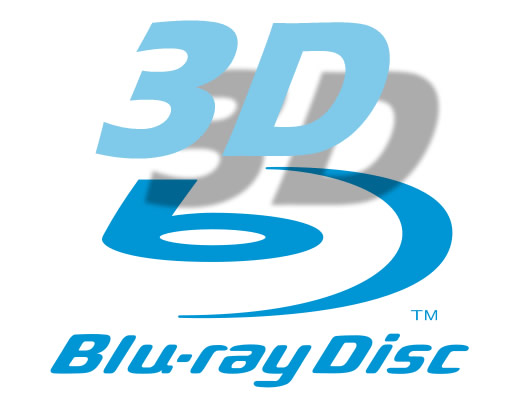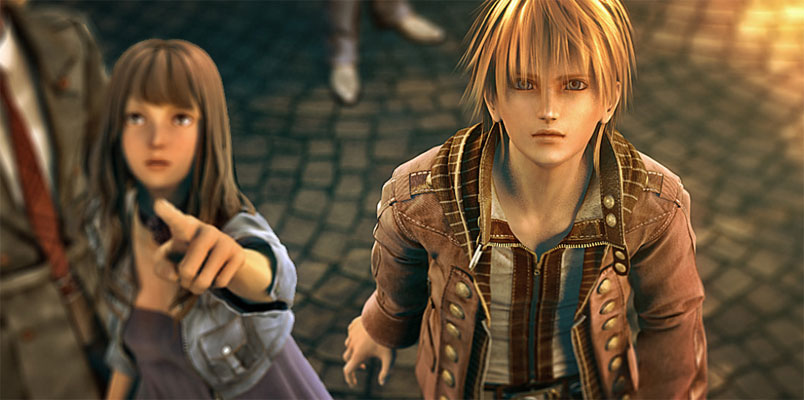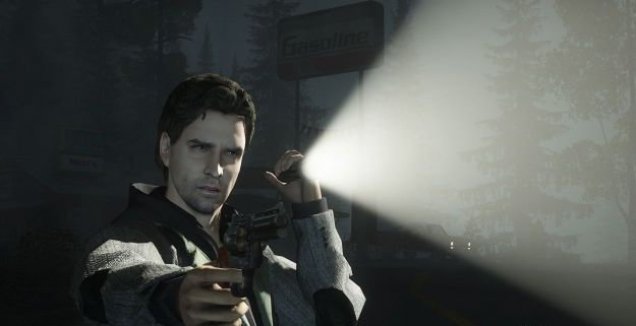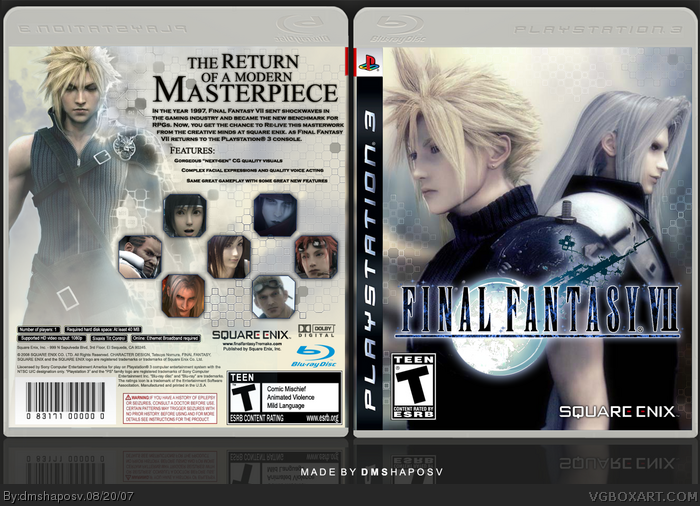Le site gamesradar.com fait un petit top 7 des meilleurs épisodes de la saga Final Fantasy. Un top qui change quelque peu de ce qu'on à l'habitude d'entendre:
7/Final Fantasy XII:
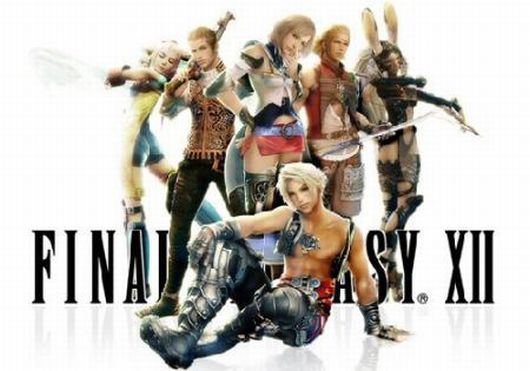
Easily one of the most divisive games in the franchise, XII was plagued with problems, delays and, as many reviewers noted, a pronounced identity crisis. After five years of waiting and roughly $35 million in development costs later, the game we received was a bizarre RPG/MMO hybrid with a robotic battle system, tons of grinding and a visual style borrowed from the Tactics sub-franchise. The result was detached, sometimes overcomplicated gameplay that barely felt like the Final Fantasy series at all.
If there’s so much going against it, why is it even on this list? Because it manages to excel in two key areas – story and characters. Instead of focusing on one character’s journey, XII bucks the series trend by focusing on an epic, sweeping war that Vaan, Ashe, Fran and the rest of the cast can’t help but be a part of. Some of the set pieces and action sequences are quite spectacular, excellently conveying the sense of scale and what’s at stake. Add a massive world and expectedly awesome cutscenes and you’ve got more than enough counterbalance to the iffy battle setup. It was a bold departure that’s not only held up over the years, but also a fantastic sendoff to the PS2 era.
6/Final Fantasy V
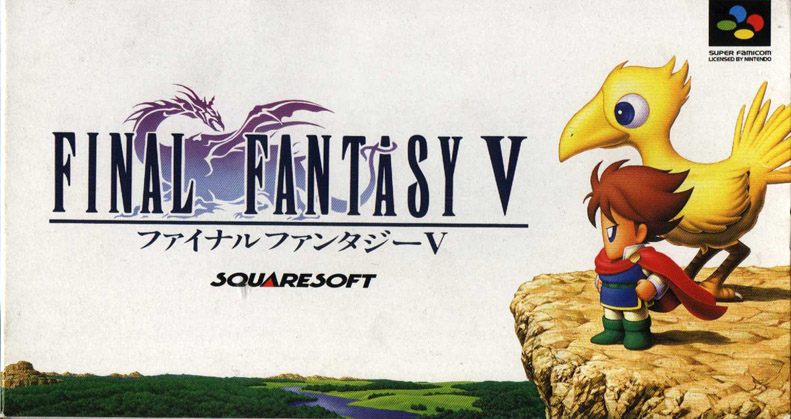
Though it has one of the weakest stories in the entire series, particularly sandwiched between the melodramatic IV and VI, the gameplay is among the best, thanks to the addictively deep Job System. The feature was pioneered in FFIII and brought to its fullest flower in this game, with tons of different character classes to master and an innovative ability to pick and choose skills for every character in your party. It’s such a beloved addition that it’s since become the backbone of the Final Fantasy Tactics series.
It's one of the most infrequently played games in the franchise, partially because Square didn’t bring it to the US during the 16-bit days and later releases were compilations (FF Anthology) or on aging hardware (GBA’s FFV Advance). Those who have sunk in the time, however, maintain its Job System is one of the biggest highlights in a series that routinely breaks new ground. This underground fan love led to several fan-translated ROMs of the Japanese original, finally made obsolete by the fully featured GBA port released in 2006 – a full 14 years after its initial Japanese launch. Maybe now it’ll get some respect.
5/Final Fantasy IX
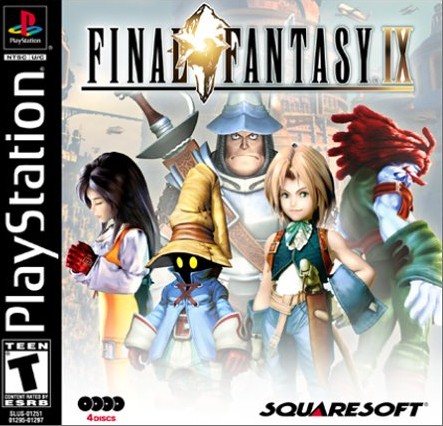
Here’s a strange twist – IX has the highest Metacritic average of all Final Fantasy games yet is among the lowest-selling. What’s with the discrepancy? IX is a total homage to the “fantasy” aspect of Final Fantasy, calling upon kiddie-sized heroes, medieval settings and an old-school battle system, completely contrasting VII and VIII’s super-serious characters and near space-age technology. They were immensely popular and as such introduced the RPG genre to millions of gamers for the first time. When IX arrived with its drastic switch in tone and execution, a lot of these newcomers were turned away. Everyone who stayed, on the other hand, had their hearts melted by a whimsical adventure that pushed pluckiness over stoic angst.
Despite the cutesy appearance, the tale itself is unusually personal and dark, further echoed by an extremely moving and melancholy soundtrack that composer Nobuo Uematsu considers his best work. Each of the characters initially appears shallow and almost cheerfully unaware (even lead man Zidane), but dig deeper and you find a cast that’s been profoundly wronged, frequently lamenting that it’s hopeless to continue fighting but do because they know it’s right. Beyond the plot and cast, the gameplay itself was delightfully simplified after VIII’s convoluted Junction and Draw systems, ironically making this a far better “first” Final Fantasy than its two popular predecessors. It’s a wonderful sendoff to the original PlayStation and the perfect bit of fan service to those who wish Final Fantasy never abandoned 16-bit sensibilities.
4/Final Fantasy X
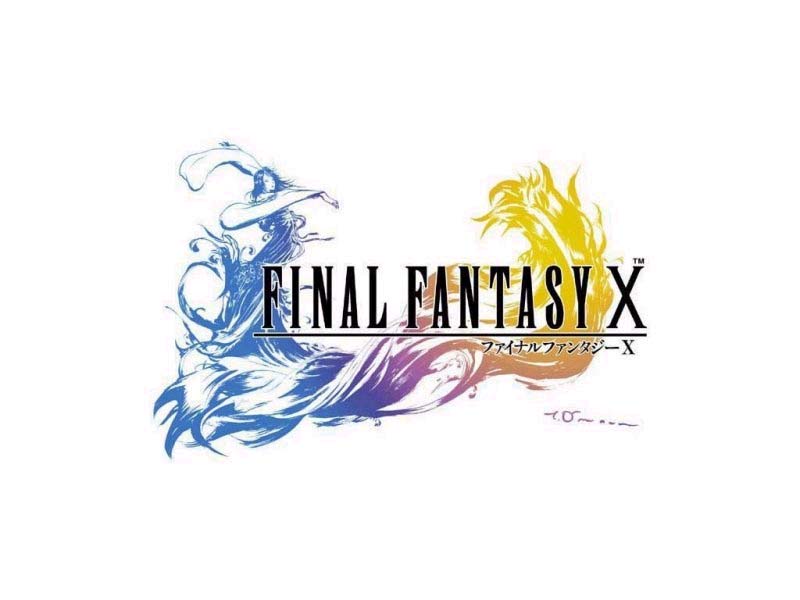
The third major release in three years, FFX came hot on the heels of both VIII (1999) and IX (2000). This rapid-fire procession of sequels stopped with Tidus and Yuna however, as FFXI was an online-only MMO and XII wasn’t going to show up until 2006. Given how far XII strays from the norm, X remains the most recent “traditional” game in the series, despite the fact that it too shook off some of the franchise’s trappings and became a brand new, totally fresh experience while still nailing everything that makes this series so endearing.
Final Fantasy X brought psychological storytelling to fruition with the addition of voice, realistic character graphics and a story that actually had internal logic. The beautiful and sensitive summoner Yuna contributed as much to the story as Tidus, the ostensible main character, and the game was all the richer for it (we even named them one of gaming’s greatest couples). X burst onto the PS2 with graphics that still stand up to scrutiny and some of the most engrossing gameplay in the series; the revamped, nail-biting battle system made a refreshingly strategic change from the rest of the series while the Sphere Grid made leveling your characters almost criminally adIt’s sad that VII has achieved almost godlike adoration. As millions of gamers’ first RPG, it comes complete with the only defense you can’t break – nostalgia. This heated affection (and contrary hatred) has made VII into something it’s not, namely “the best RPG of all time.” It’s got a handful of flaws, deal with it. But there is simply no denying the overwhelming quality of not just the technology, but also the gameplay and all its related parts. The battles are a perfect mix of old-school Active Time Battles and the new, functional idea of Materia, enabling you to create all kinds of crazy magical combos. And with the varied quests lying about, you'll have plenty of opportunities to exhaust every nuance of this finely tuned fighting engine. From the first assault on Midgar to Sephiroth's galaxy-busting final attack, VII exceeded every goal and even created new ones for developers around the world.
dictive. The revelatory plot twist near the end remains one of our favorites in all of gaming.
3/Final Fantasy VII
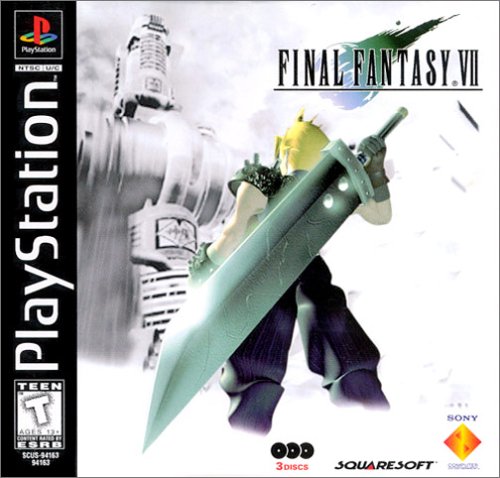
It’s sad that VII has achieved almost godlike adoration. As millions of gamers’ first RPG, it comes complete with the only defense you can’t break – nostalgia. This heated affection (and contrary hatred) has made VII into something it’s not, namely “the best RPG of all time.” It’s got a handful of flaws, deal with it. But there is simply no denying the overwhelming quality of not just the technology, but also the gameplay and all its related parts. The battles are a perfect mix of old-school Active Time Battles and the new, functional idea of Materia, enabling you to create all kinds of crazy magical combos. And with the varied quests lying about, you'll have plenty of opportunities to exhaust every nuance of this finely tuned fighting engine. From the first assault on Midgar to Sephiroth's galaxy-busting final attack, VII exceeded every goal and even created new ones for developers around the world.
It's equally important to note how VII changed, well, everything. Role-playing games went from niche to mainstream thanks to Cloud and his crew. The Hollywood-style cutscenes delivered action in fresh new ways while the power of the PlayStation offered a game that demolished all contemporary competition. This game's impact was so impossibly heavy that you could blame it for causing Nintendo's late '90s downfall - once Square defected to Sony, Nintendo never caught back up. Not in Japan, not in the US, not anywhere. The name “Final Fantasy” carries so much weight that this one game practically sealed the success of Sony, and the continuous downward spiral of Nintendo (a situation it only truly recovered from nine years later with Wii).
2/Final Fantasy IV
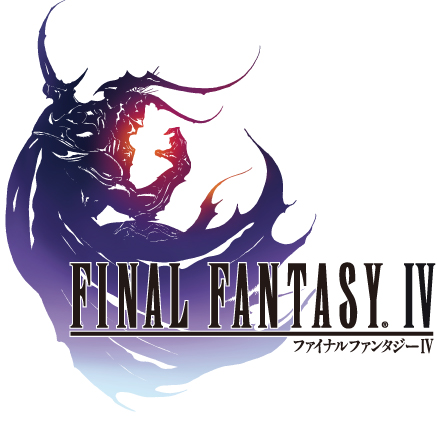
All the praise we just heaped onto FFVII – the storytelling, the tense battle system, the memorable cast, the genre-expanding gameplay concepts – all of that applies to Final Fantasy IV, and it did them all seven years before Cloud ever set foot in Midgar. The first three Final Fantasy games were comparatively simple and straightforward, and hardly set the non-Japanese world on fire. FFIV was a breath of fresh air, introducing lively, motivated characters, a broad new world with gorgeous graphics and a massive variety of environments, all with a brand-new 16-bit sheen. The 2008 DS remake only improved the original’s impact.
The groundbreaking ATB (Active Time Battle) system became the standard for the entire series, inspiring just about every JRPG released during the 16-bit generation. Beyond that, the actual plot and characters resonated with an audience accustomed to one-dimensional heroes and villains, and though the dialog and situations are sometimes overly dramatic, they inspired the very template that countless RPGs have followed for years. FFVII may have brought RPGs to the mainstream, but IV (along with Sega’s Phantasy Star II) pulled them of the dungeon-crawling muck and redefined what the genre could be.
1/Final Fantasy VI
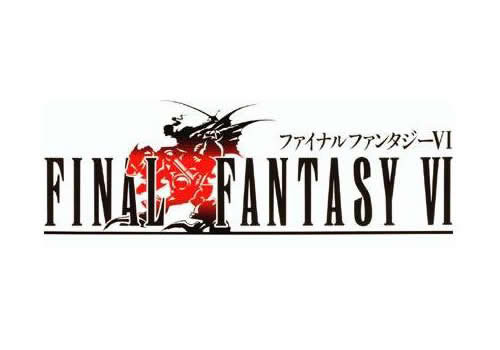
To be fair, every Final Fantasy is so different and appealing/shitty in various ways that determining the “best” is impossible. But we’re going to anyway, and if we measure all the things that make this series what it is –standout characters, show-stopping soundtracks, over the top villains and an intricate, far-reaching story – we honestly can’t come to any other conclusion than Final Fantasy VI. Here’s a game where the villain essentially wins and the heroes barely scrape by with a bittersweet victory, all bundled inside gameplay that made every battle a glorious mix of customizable attacks and character-specific actions.
One of Mass Effect 2’s strongest selling points is the amount of time spent getting to know your supporting teammates. FFVI does the exact same thing, weaving the ensemble cast’s personal stories into the overarching tale in such a way that you intimately know their plight by the time the final battle unfolds. We love Cloud, Cecil, Tidus and all their friends, but something about Terra, Locke, Sabin, Edgar, Celes and the many others stuck with us long after the credits ran. Speaking of credits, we called out VI’s 21-minute ending as one of the best in the franchise. Add that to what we consider the best soundtrack in Final Fantasy history (and perhaps even all of gaming) and we simply can’t choose any other game for the top spot.
